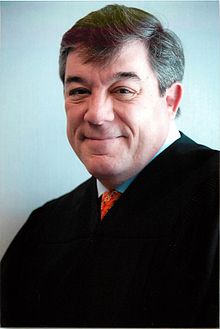 Here's the piece:
Here's the piece:Adalberto Jordan, a federal appeals court judge twice confirmed by the U.S. Senate, could become the Supreme Court's first Cuban-American justice if nominated by President Barack Obama and approved once again.
Jordan, 54, is one of a number of potential nominees to replace Justice Antonin Scalia, who died last month. Obama has vowed to nominate a successor, but Senate Republicans say they will withhold approval in hopes that a new Republican president can pick the next justice.
Born in Havana shortly after the communist revolution led by Fidel Castro, Jordan emigrated to the U.S. with his family as a small boy, along with thousands of other Cuban exiles. He attended a Catholic high school in Miami and got both his bachelor's and law degrees from the University of Miami.
Jordan, who goes by "Bert," has served as a federal prosecutor, a U.S. district judge appointed by President Bill Clinton and has sat on the generally conservative 11th U.S. Circuit Court of Appeals since 2012 - the first Cuban-American to do so. He also clerked for former Supreme Court Justice Sandra Day O'Connor and was in private practice for five years.
The Senate confirmed him to the Atlanta-based appeals court by a 94-5 vote.
During his confirmation hearings, Jordan was asked by Sen. Orrin Hatch, R-Utah, about his views on the impartiality of judges and whether there was any place for personal or political viewpoints in their rulings.
"We are all human beings, of course, but I think as a judge you need to try and strive very, very hard to make sure you are deciding the case on something other than your own preferences and views, whatever those might be," Jordan replied. "So I have strived and I hope I have achieved impartiality in my years on the bench in Miami."
